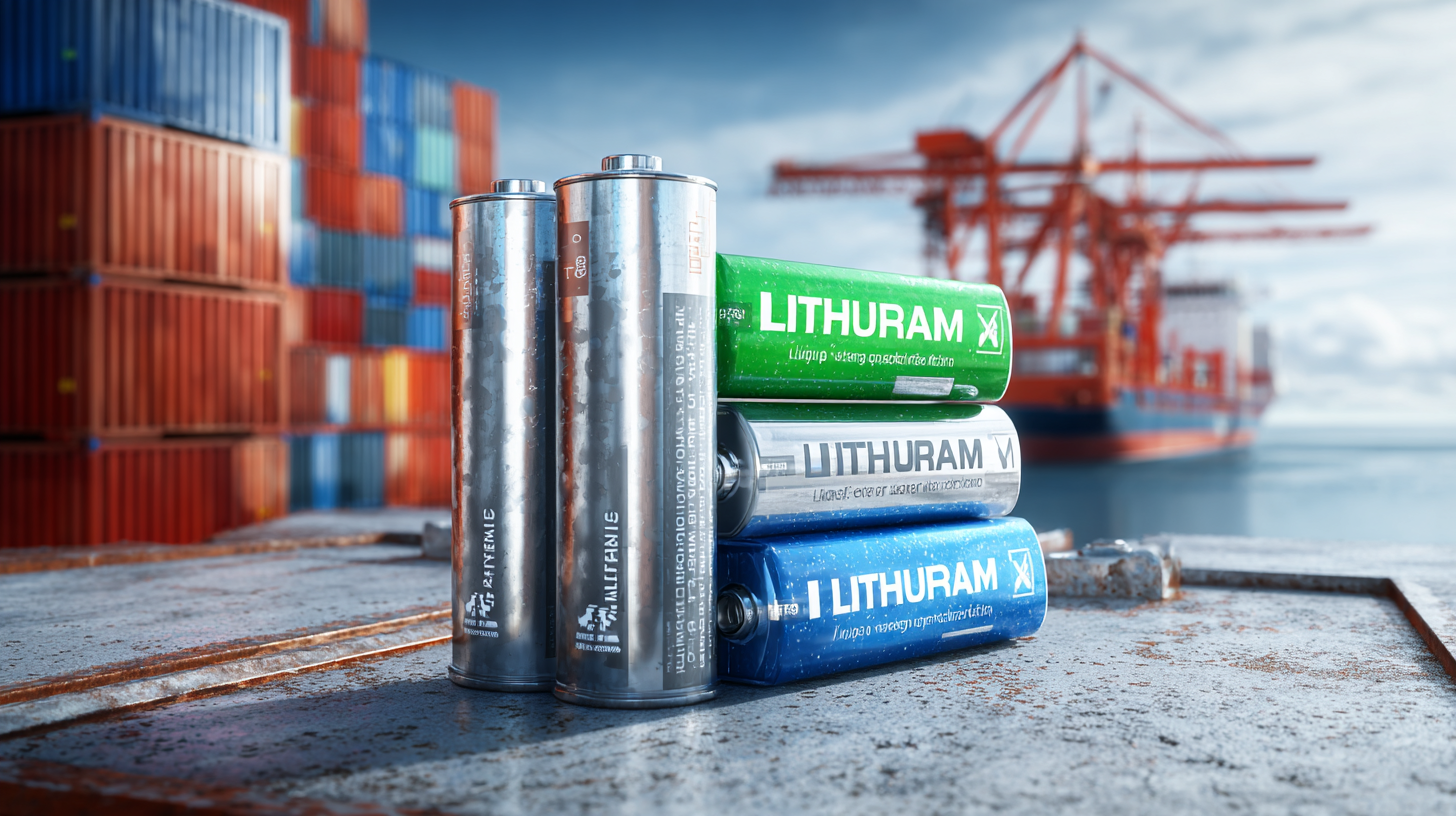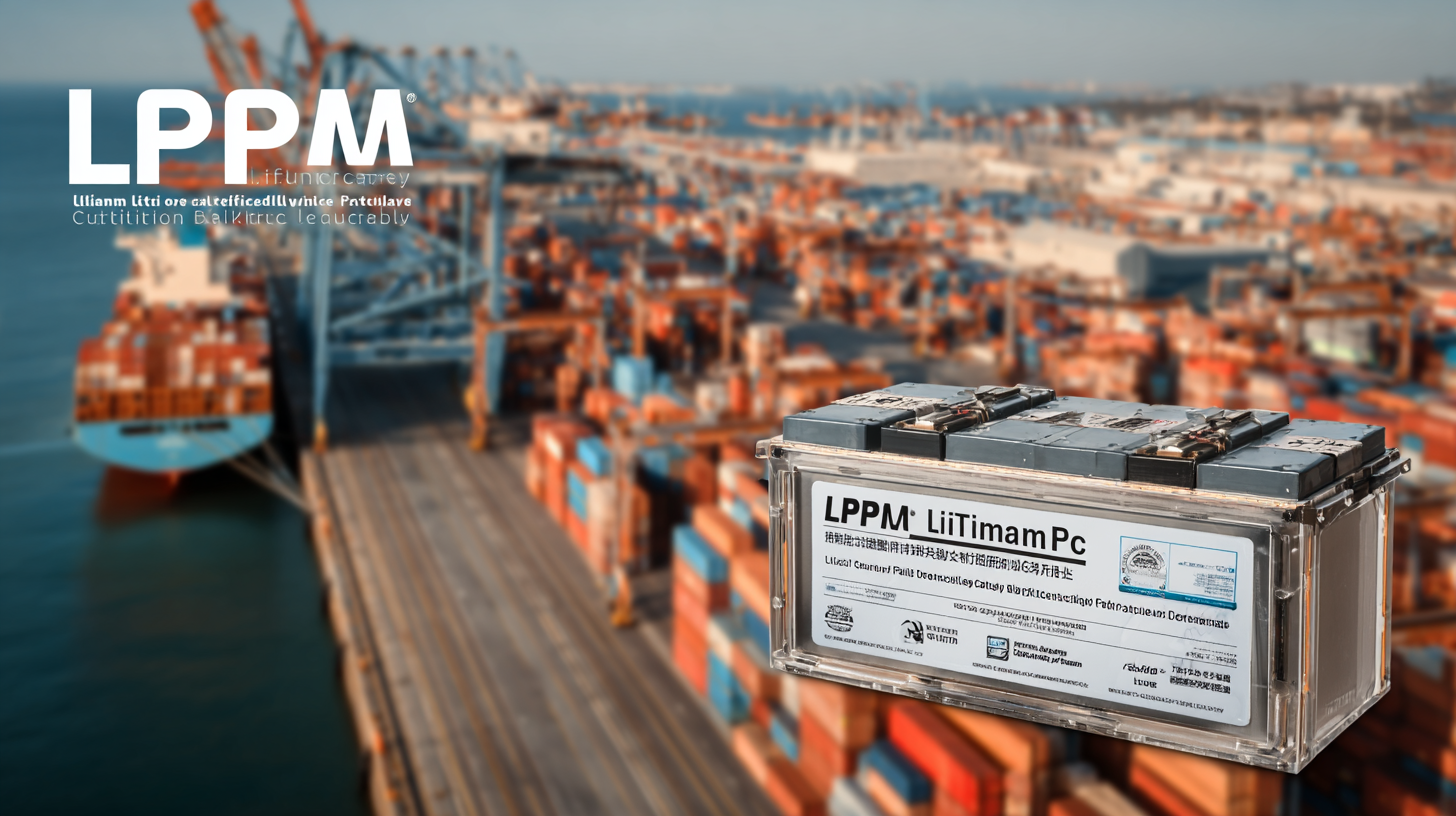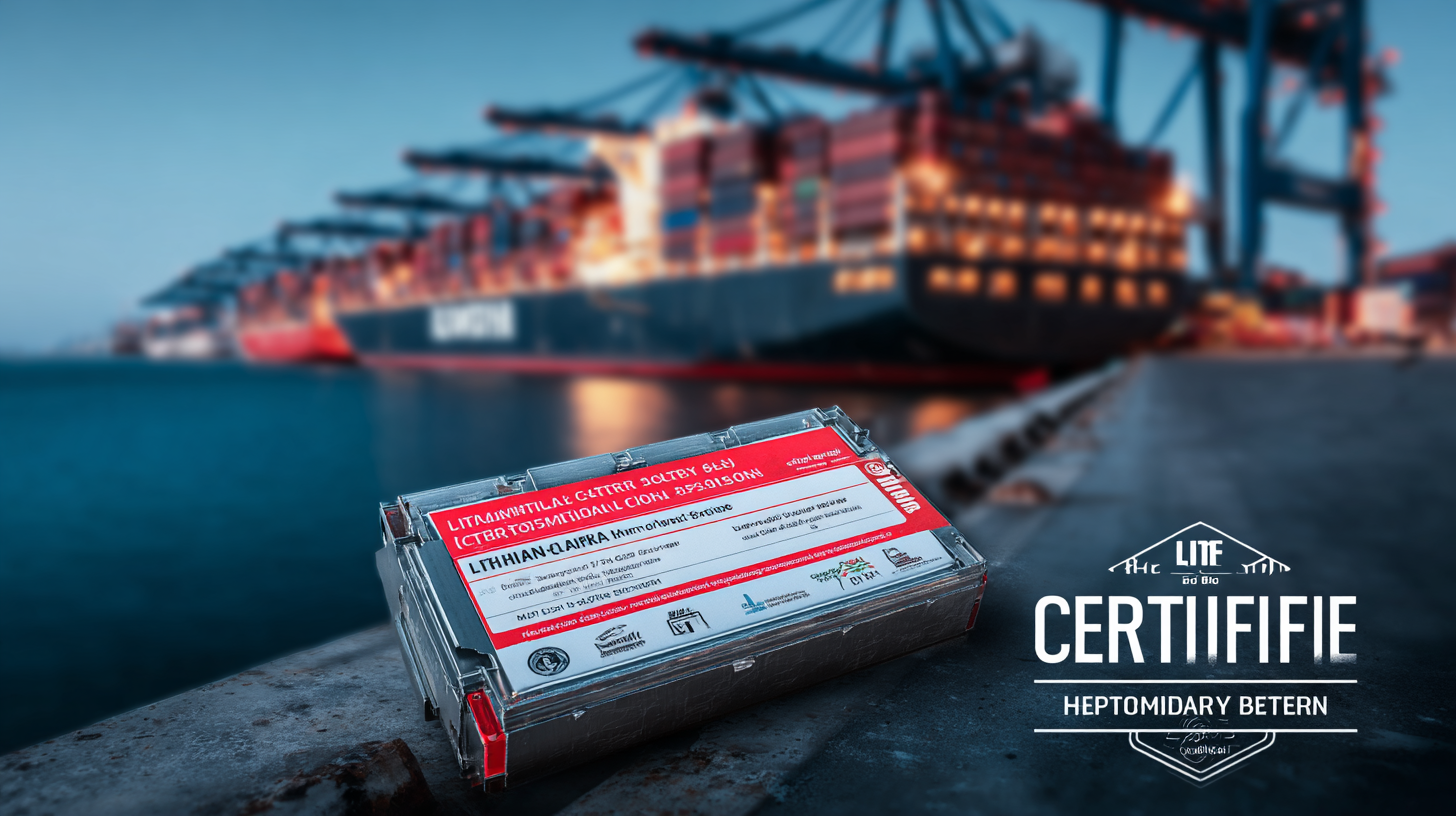As the demand for sustainable energy solutions continues to rise, the global market for Lithium Phosphate Battery Packs is expected to see exponential growth. According to a report by MarketsandMarkets, the lithium-ion battery market is projected to reach $129 billion by 2027, with a significant share attributed to lithium phosphate technology due to its enhanced safety and thermal stability. These batteries are becoming increasingly vital in various sectors, including electric vehicles and renewable energy storage systems.

However, navigating the maze of global trade certifications for Lithium Phosphate Battery Packs can be a daunting task for manufacturers and suppliers alike. This blog aims to provide a comprehensive step-by-step guide to help stakeholders understand and comply with the necessary certifications, ensuring that they can thrive in this booming market while upholding international safety and quality standards.
Understanding the importance of global trade certifications for lithium phosphate batteries is critical in today’s highly regulated marketplace. These certifications not only ensure compliance with international standards but also provide assurance to consumers regarding the quality and safety of the products. As lithium phosphate batteries gain traction for their efficiency and stability, understanding the specific certifications—such as UL, CE, and RoHS—becomes essential for both manufacturers and buyers. Each certification addresses different aspects, including electrical safety, environmental impact, and overall product reliability.
Navigating the certification process can be daunting, but it is vital for gaining market access and building trust with customers globally. Manufacturers must remain vigilant about meeting these standards, as failing to do so could lead to significant setbacks, including recalls or loss of market opportunities. Additionally, in an era where sustainability is paramount, certifications that emphasize eco-friendly manufacturing processes can give companies a competitive edge. By prioritizing these certifications, businesses not only enhance their credibility but also contribute to a more sustainable future in the battery industry.

When it comes to ensuring the quality and safety of lithium phosphate battery packs, various certifications play a crucial role. Navigating the complex landscape of global trade certifications can be overwhelming. However, understanding the key certifications can streamline this process and provide manufacturers and consumers with confidence in product compliance. Notably, certifications like UL 2054 for household and commercial batteries and ISO 9001 for quality management systems are essential. These certifications not only guarantee product safety but also enhance marketability.
In addition to safety certifications, environmental standards such as the RoHS (Restriction of Hazardous Substances) and REACH (Registration, Evaluation, Authorisation, and Restriction of Chemicals) are increasingly important. These certifications ensure that lithium phosphate battery packs are produced without harmful substances, aligning with global sustainability goals. Manufacturers should also consider certifications like IEC 62133, which focuses on the safe transportation and use of lithium batteries. By adhering to these guidelines, manufacturers can foster trust and drive innovation in the lithium battery sector, meeting both regulatory requirements and consumer expectations.
| Certification Name | Description | Issuing Organization | Region | Validity Period |
|---|---|---|---|---|
| UL 2054 | Standard for Lithium-Ion Battery Packs for Consumer Products | Underwriters Laboratories | North America | 5 years |
| CE Marking | Indicates conformity with health, safety, and environmental protection standards | European Union | Europe | Indefinite, as long as the product meets requirements |
| UN 38.3 | Testing procedures for lithium batteries to ensure safe transport | United Nations | International | N/A |
| ROHS | Restriction of Hazardous Substances Directive compliance | European Union | Europe | Indefinite |
| ISO 9001 | Quality management standard | International Organization for Standardization | Global | 3 years |
 Acquiring global trade certifications is essential for businesses in the lithium phosphate battery industry. This step-by-step process ensures that your products meet international safety, environmental, and performance standards, ultimately expanding your market reach and enhancing consumer trust. The initial step involves thoroughly researching certification requirements specific to your target markets, as these can vary significantly based on regional regulations and standards.
Acquiring global trade certifications is essential for businesses in the lithium phosphate battery industry. This step-by-step process ensures that your products meet international safety, environmental, and performance standards, ultimately expanding your market reach and enhancing consumer trust. The initial step involves thoroughly researching certification requirements specific to your target markets, as these can vary significantly based on regional regulations and standards.
Once you've identified the necessary certifications, the next phase focuses on preparing your product for testing and evaluation. This requires documenting technical specifications, conducting internal quality checks, and possibly implementing modifications to meet compliance criteria. Partnering with certified testing laboratories can streamline this phase, as they provide the necessary validation of your products against international standards. After successful testing, you can proceed to submit your application for certification, marking a crucial advancement in your global trade journey.
Obtaining certification for lithium phosphate battery packs can be a complex but essential process for ensuring safety and compliance in global markets. The first step in navigating the certification approval process is to thoroughly understand the specific requirements set by the regulatory bodies in your target markets. Different regions may have varying standards, so it is crucial to familiarize yourself with these regulations early on. This can save time and resources, as misalignment with certification requirements often leads to delays and additional costs.
Once you have a clear understanding of the requirements, gather all necessary documentation and ensure that your battery packs undergo rigorous testing. Documentation typically includes technical specifications, safety test results, and compliance evidence. Partnering with accredited laboratories can help streamline this process, as they can provide the necessary testing services and offer insights into meeting compliance standards effectively. Additionally, maintaining open communication with certification authorities can provide clarity and expedite the review process, increasing the chances of approval on the first submission.
Navigating the landscape of global trade certifications can be a daunting task, especially for companies involved in the lithium phosphate battery industry. Maintaining compliance through ongoing certification management is essential not only for meeting regulatory requirements but also for enhancing service quality. For businesses aiming to uphold industry standards, it’s crucial to implement best practices for certification management, which include establishing a comprehensive checklist to monitor compliance, regularly updating training materials, and scheduling periodic audits to assess adherence to standards.
To thrive in this environment, companies must also understand the intricacies of change management processes, such as those outlined by ITIL, which can significantly impact service delivery and alignment with business objectives. By integrating effective certification management with established change management frameworks, organizations can ensure they remain agile and resilient in the face of shifting regulations and market demands. This strategic approach will not only streamline operations but also reinforce a commitment to quality that resonates with stakeholders across the board.


